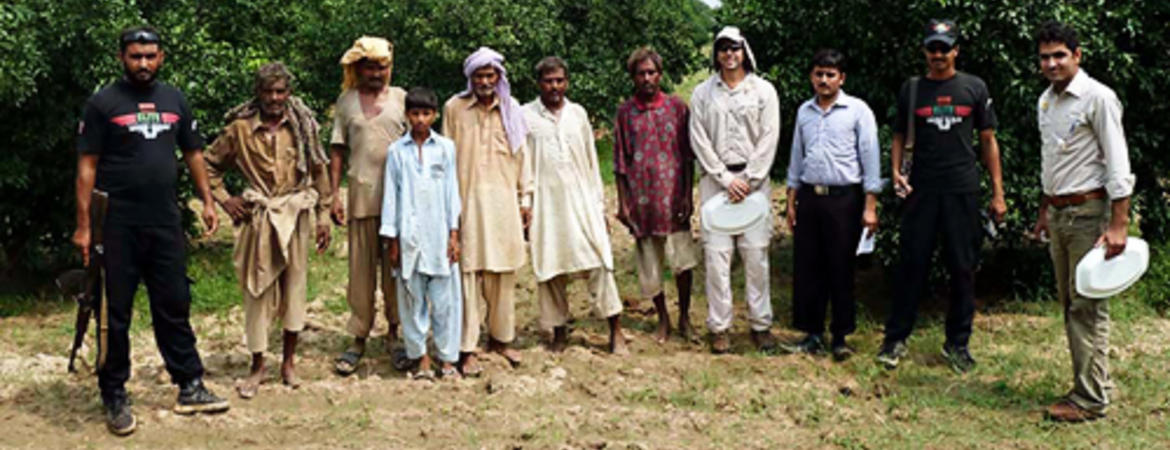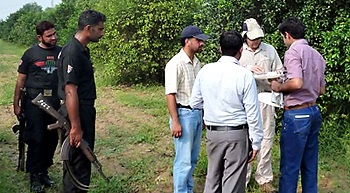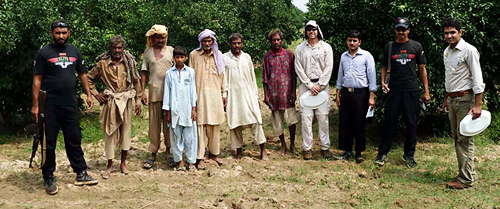
The Hunt for Natural Enemies has Begun

Asian citrus psyllid (ACP), Diaphornia citri, is considered to be one of the world’s most serious threats to economic citrus production because it vectors a bacteria, Candidatus Liberibacter asiaticus, that causes Huanglongbing (HLB) (also known as citrus greening), a disease that is lethal to most varieties of citrus. In countries where this psyllid-bacteria combination have successfully invaded, citrus production has dropped markedly because trees go into decline losing vigor, leaves drop from trees and the canopy becomes thin, and developing fruit tends to become small, misshapen, and bitter.
In September 2008, ACP was found in southern California and it is thought that this insect entered California from Mexico where this insect and HLB are both present. Currently, HLB is not known from California.

In an attempt to manage ACP in California, entomologists at the University of California Riverside have been working at the University of Agriculture in Faisalabad in Pakistan to better understand the impacts natural enemies have on controlling ACP in the Punjab region of Pakistan. The reason this area was selected for investigation is because the Punjab region of Pakistan and India may be the area of origin where ACP and HLB evolved. The reason for this assumption is that the first study on ACP was published by two “Imperial Entomologists” Mohammad Husain and Dina Nath who studied ACP attacking citrus primarily in the Punjab region of Pakistan. Their research entitled “The Citrus Psylla (Diaphorina citri Kuw.) Psyllidae: Homoptera” was published in 1927. In this article, Husain and Nath state that nine species of parasitoid attack ACP in the Punjab.

What is very curious about Husain and Nath’s work is that today, we know of only two species of parasitoid that attack ACP, not nine species. This lack of information on parasitoids associated with ACP in the Punjab of Pakistan raises a very important question: What are these species of parasitoid attacking ACP in the Punjab of Pakistan?
To get a better handle on the ACP-natural enemy situation in Pakistan, Mark and Christina Hoddle visited the University of Agriculture in Faisalabad in Pakistan in September 2010. This trip was supported by funds provided to the California Department of Food and Agriculture (CDFA) by the Citrus Health Response Program (CHRP).
This visit was extremely useful as it provided an opportunity to visit the same citrus production areas that Husain and Nath worked in during the early 1920’s. Excellent working relations were forged with faculty at the University of Agriculture in Faisalabad, and the infrastructure exists in Pakistan for developing a classical biocontrol program for ACP in California. Plans are being developed for 2011 to take advantage of the momentum this visit to Pakistan has created.
